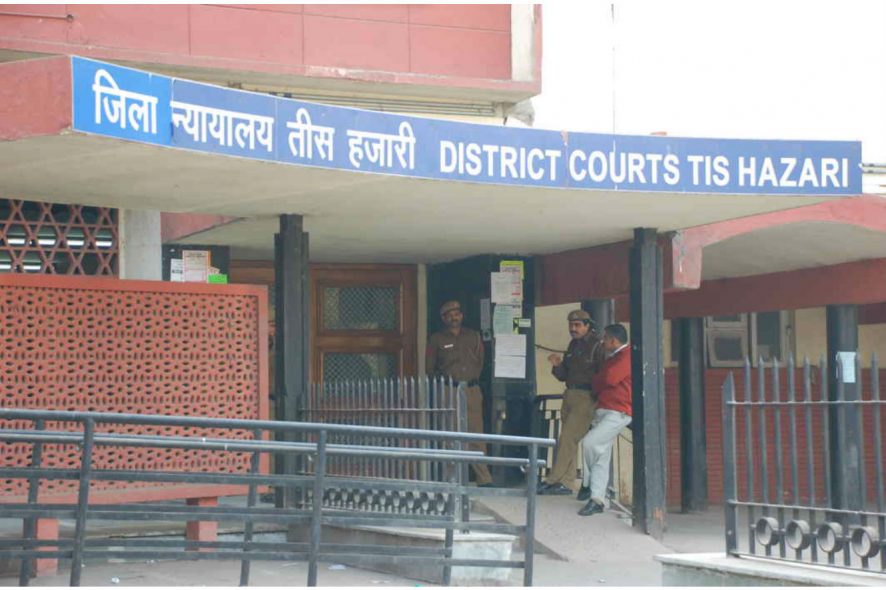Tis Hazari Courts, New Delhi: While addressing a decision revolving around Section 138 of Negotiable Instruments Act, 1881, Sanjay Sharma-II, Additional Sessions Judge-03, upheld the decision of the Trial Court and held that all the ingredients of Section 138 NI Act were fulfilled by the complainant.
A criminal appeal under Section 374 of the Criminal Procedure Code, 1973 was directed against the decision in case regarding Section 138 of the Negotiable Instruments Act, 1881, whereby the trial Court convicted the appellant for the said offence.
Factual Background
The complainant had filed a complaint under Section 138 of the NI Act that the appellant and her husband had friendly relations for 5 years and in the guise of the same, a friendly loan of Rs 1,00,000 was taken by the appellant.
At the time of returning of loan money, two cheques were issued but were returned unpaid with the remark “FUNDS INSUFFICIENT”. On re-representation, the said cheques were returned unpaid with the remark ‘OTHER REASONS’. Despite the receipt of the demand appellant failed to make payment of cheque.
Hence, a complaint under Section 138 NI Act was filed and the trial court while convicting the appellant under Section 138 NI Act, pronounced the following decision:
(a) The appellant admitted that the said cheques were drawn on an account maintained by him;
(b) The said cheques were presented for encashment within period of their validity;
(c) The reason for dishonour of the said cheques i.e. ‘Other reasons’ is a specie covered under the genus ‘dishonour of cheque for insufficiency, etc., of funds in the account’;
(d) The appellant was duly served with the demand notice through his real brother, namely, Lokesh;
(e) There is a legal presumption that the said cheques were drawn for consideration and in discharge of debt or other liability; and
(f) The appellant failed to raise probable defence to rebut presumption of existence of legally enforceable liability.
On being aggrieved with the above, the present appeal was preferred.
Scope of Jurisdiction of First Appellate Court
Appellant Court’s jurisdiction is co-extensive with that of the trial court in the matter of assessment, appraisal and appreciation of the evidence and also to determine the disputed issues.
Points for Consideration
(a) Whether the complainant is required to prove that she received the said cheques in discharge of any debt or other liability?
Once the signatures of the appellant on cheques were established, ‘reverse onus’ clauses under Sections 118 and 139 NI Act become operative.
The appellant must raise a ‘probable defence’ and the standard of proof is ‘preponderance of probabilities’.
The appellant can lead direct evidence or rely upon evidence adduced by the complainant to show that consideration or debt did not exist, or non-existence of consideration or debt is probable.
(b) Whether dishonour of the said cheques with remark ‘Other reasons’ is covered under Section 138 NI Act?
The appellant had neither attributed nor proved that the said cheques were dishonoured on account of any negligence of his banker. The appellant did not make payment of cheque amount despite receipt of demand notice. Therefore, this Court opined that dishonour of cheques with remark ‘other reasons’ was covered under Section 138 NI Act, as any other interpretation would defeat the object of provisions of Section 138 NI Act.
(c) Whether non-examination of husband of the complainant is fatal to her case?
In Court’s opinion, husband of the complainant was not a material witness. The complainant need not examine him to prove friendly relation with the appellant. Further, the complainant’s husband had no role in a transaction in question and if the appellant wanted to prove absence of the said relation, he could have examined him in defence.
(d) Whether the complainant was required to examine witness from bank to prove cheque returning memos?
It was contended that the complainant did not examine the witness from her bank to prove cheque returning memos and stamps.
Section 146 NI Act provides that bank’s memo is prima facie evidence of the fact of dishonour of cheque.
The complainant had filed original cheque returning memos pertaining to dishonour of the said cheques vide memos and appellant led no evidence to rebut the presumption that the said memos were not issued by his banker in relation to dishonour of the said cheques.
In the present matter, the appellant did not show that he had suffered any prejudice during trial by the Trial Court and neither contended that there was any miscarriage of justice.
Conclusion
In Court’s opinion, the complainant established all pre-requisites as required under Section 138 NI Act, hence the appellant was rightly convicted for committing offence under Section 138 NI Act.
The Bench directed the appellant to surrender before the trial Court. [Deepak Kumar v. Mehnaz, 2022 SCC OnLine Dis Crt (Del) 14, decided on 9-5-2022]






